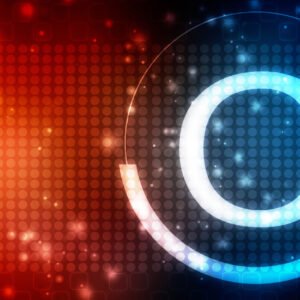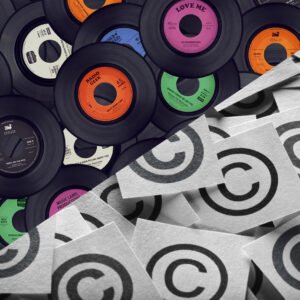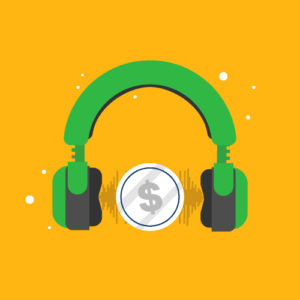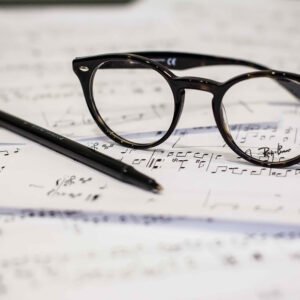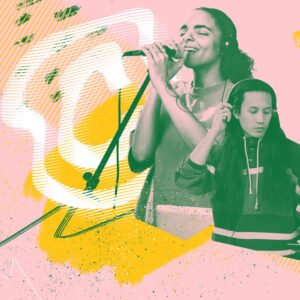This article delves into the world of musical copyright, where the vibrancy of the music industry is undeniable. We will explore what musical copyright is, how it works, its significance for musicians in Nigeria, and the legal framework that governs it.
Music is a universal language that transcends borders and cultures, touching the hearts and souls of people around the world. Behind every captivating melody and inspiring lyric is a creative artist, whether it's a songwriter, composer, or performer. To protect the rights and intellectual property of these artists, the concept of musical copyright comes into play.
What is Musical Copyright?
Music copyright is the legal ownership of musical composition and/or sound recording. Every song has two copyrights: the musical composition (music, lyrics) and the sound recording (master/mp3). Copyright owners have rights regarding how their songs are used and earn royalties from their songs.
Elements of Musical Copyright
Musical copyright consists of two primary elements: Sound Recording Copyright and Musical Work Copyright.
It is important to note the distinction between a musical composition and a sound recording. There's the music composition, which is the intellectual property of the composer(s) who created it, or their publisher(s). It includes aspects like the lyrics, melody, rhythm, and harmony.
Then there is a sound recording, which is the physical and digital property of the recording artist or recording label that produced it. Each one is separately protected under copyright. In some cases, you can register both parts together in the same filing, other times you must file them separately.
(1) musical work copyrights encompass the lyrics, melody, and musical structure of a song. It is often referred to as the "publishing rights."
and
(2) sound recording copyrights pertain to the specific recorded performance or arrangement of a musical composition. It involves the recording artists, sound engineers, and producers.
Although these two copyrights are inextricably linked for obvious reasons, they are separate business assets that trigger different revenue streams.
Subject to granting an assignment of copyright/license to a music publisher or record label, the author of the musical work (i.e. songwriter) will generally be the owner of the musical work copyright, while the performer of the song on the record and/or producer will generally be the owner of the sound recording copyright (referred to as the “maker” under the Copyright Act).
If you are both the author of the musical work and performer on the record and/or producer, subject to an agreement to the contrary, you will likely own both the musical work copyright and sound recording copyright.
It is common for songwriters and performers, as they progress in their careers, to work with music publishers and record labels to commercially exploit their copyrights. At that stage, music publishers will generally own/control (in whole or in part) the musical work copyrights, and record labels will generally own/control (in whole or in part) the sound recording copyrights.
Music Licensing and Royalties
Musical copyright holders can license their works for various uses, in return, they receive royalties, which are payments made for the use of their music. This is a significant source of income for musicians, songwriters, and composers.
As mentioned earlier, each copyright will trigger different revenue streams for the owner(s)/licensee(s). For example, the musical work copyright can generate revenue when the work is reproduced or performed in public, which includes: performing the song live, performance at events or in businesses, performance on terrestrial or satellite radio, pairing the song with visual images (like a T.V. show, commercial, or movie), performance via online music services (such as on-demand streaming services), reproducing the song through on-demand streams or physical sales, etc.
Similarly, the sound recording copyright generates revenue when it is exploited, which includes: reproducing the sound recording on a T.V. show, commercial, or in a movie (which requires a master use license), reproducing the sound recording via online music services or through physical sales/digital downloads, performing the sound recording on terrestrial/satellite radio and in businesses (i.e. “neighboring rights” royalties), etc.
Duration of Musical Copyright
Copyright protection for musical works is not perpetual. In Nigeria, the duration of copyright for musical compositions is the lifetime of the author plus 70 years after their death. For sound recordings, it is 50 years from the date of the recording.
What can be Copyrighted?
In the music industry, copyright protection extends to various creative works, but not everything can be copyrighted. It's essential to understand what can and cannot be copyrighted to navigate the legal landscape effectively.
Here's a breakdown of what can and cannot be copyrighted in the music and music industry:
1. Musical Compositions:
Original Melodies: Original musical melodies, whether instrumental or vocal, are eligible for copyright protection.
Lyrics: The lyrics of a song, including the words and their arrangement, can be copyrighted.
2. Sound Recordings:
Specific Performances: Sound recordings of specific performances, which may involve vocalists, instrumentalists, and production elements, can be copyrighted.
Sound Engineering: The arrangement of the recording, sound engineering, and mixing can be subject to copyright.
3. Original Arrangements:
Unique musical arrangements and adaptations of existing compositions can be copyrighted, provided they demonstrate originality.
4. New Musical Elements:
Elements such as rhythm patterns, chord progressions, and harmonies can be copyrighted if they are original and not common in the public domain.
5. Copyrighted Music Royalties:
The rights to receive royalties from the use of copyrighted music can also be transferred and inherited, providing a revenue stream for copyright owners and their heirs.
6. Album Artwork:
The visual artwork used for album covers, promotional materials, and merchandise can be copyrighted separately from the music.
7. Music Videos:
Videos produced to accompany music can be copyrighted as audiovisual works.
8. Music Compositions in Other Media:
Music used in films, advertisements, video games, and other media can also be copyrighted separately.
9. Musical Compositions in Notation:
Sheet music and notations of musical compositions are eligible for copyright protection.
What Cannot Be Copyrighted:
1. Public Domain Material:
Works that have entered the public domain are not eligible for copyright protection. These are typically works whose copyright has expired or has been voluntarily relinquished by the copyright holder.
2. Titles and Short Phrases:
Short titles, names, and phrases are generally not eligible for copyright protection. However, they can be protected under trademark law.
3. Facts and Information:
Factual information, data, and ideas themselves are not copyrightable. However, the expression of these ideas may be copyrighted.
4. Utilitarian Objects:
Copyright does not protect the functional aspects of musical instruments, equipment, or other utilitarian objects. However, unique artistic designs on these objects may be copyrighted separately.
5. Basic Musical Elements:
Basic and commonly used musical elements, such as basic scales and musical notes, are not copyrightable.
6. Public Performances:
Copyright does not cover the act of public performance itself, which may be regulated through performance rights licenses instead.
7. Improvisations:
Unrecorded improvisational performances are generally not eligible for copyright protection, as copyright law typically requires a fixed, tangible form.
8. Cover Versions:
While a cover version of a song may be subject to copyright for the new recording, it does not affect the original copyright of the song itself.
Since anyone can claim infringement in a court of law, we see exceptions to the rules above from time to time.
Benefits of Musical Copyright: Reasons To Register
Curious about the benefits of music copyright?
- Certificate of Registration
- The Most Effective Way to Fight Infringement
- Allows You to File Grievances
- Eligible to Collect More
- Public Record of Ownership
- Prima Facie Evidence
- Importation Protection
- It Helps Avoids Legal Issues
- Avoids Collaboration Disputes
- Saves You Time & Money
- Leave a Legacy
What is considered Music Copyright infringement?
The creators of original works of art have the exclusive right to control how their works are made available to the public. If you are the creator of a song, recording, photograph, video, or other artistic work that was used without your permission, you may have a copyright infringement claim.
Copyright Infringement exists whenever a copyright owner’s exclusive copyrights are violated. The exclusive copyrights provided by the Copyright Act include:
- Reproduction
- Distribution
- Public performance
- Derivative works
- Public display
For example, if your music was sampled, used in a TV show, online, film, or commercial, copied, or in any way used without your permission, you may have a claim for copyright infringement.
Anyone who uses a work without the consent of the copyright owner is liable for copyright infringement. This may include a record label, another artist, or even a store that sells unauthorized copies of the recordings and songs.
The Copyright Act provides for a range of monetary damages as a remedy for copyright infringement. These money damages may include:
- Statutory damages
- Actual damages
- Attorneys’ fees
- Costs
How to Copyright Musical works in Nigeria
In Nigeria, copyright is governed by the Copyright Act, and the body charged with the enforcement and protection of copyright is the Nigerian Copyright Commission (NCC).
It should be noted that registering for copyright is not a precondition for protection. You do not have to register your copyright. It subsists automatically in a work from the moment the work is created.
However, the NCC has established a voluntary copyright registration scheme designed to enable authors and right owners to notify the Commission of the creation and existence of a work.
The NCC justifies the establishment of this scheme based on the following benefits:
- It provides an independent source of verifying data relating to a work or its author to the general public;
- The acknowledgment certificate issued provides prima facie evidence of the facts shown on it;
- It provides a depository for preserving original copies of works notified;
- The information and data contained in the Notification database offer reliable rights management information to members of the public and prospective licensees to the work.
Challenges in Enforcing Musical Copyright in Nigeria
While musical copyright is vital for the protection and prosperity of musicians in Nigeria, several challenges persist:
1. Piracy
Piracy remains a significant issue in Nigeria. Unauthorized reproduction and distribution of music deprive artists of income and hamper the growth of the music industry.
2. Lack of Awareness
Many musicians in Nigeria may not fully understand their rights and the importance of copyright protection. This lack of awareness can lead to the misuse of their creative works.
3. Inadequate Enforcement
Enforcing copyright laws can be challenging, and there is a need for more robust enforcement mechanisms to combat copyright infringement effectively.
Conclusion
Musical copyright is the cornerstone of protecting the creative and financial interests of musicians in Nigeria. It grants artists control over their music, ensures they receive fair compensation, and promotes a thriving music industry. The Nigerian Copyright Act of 2022 provides the legal framework for this protection, emphasizing the importance of copyright ownership and enforcement.
As the Nigerian music industry continues to flourish and gain international recognition, it is essential for artists to be well-versed in the principles of musical copyright. This knowledge empowers them to protect their creations, benefit from their work, and contribute to the ever-evolving tapestry of Nigerian music.
Copyright is not just a legal concept; it is a vital tool that enables artists to preserve their artistry and thrive in the dynamic world of music.
Need Assistance with Music Copyright Registration? We Can Help.
While it's possible to copyright music on your own, it can be a complicated process when it's challenging to understand copyright laws. Let 1710Media help you sort through the red tape and handle all your music copyright needs.
Register and protect music from theft and plagiarism
1710Media provides the fastest and most affordable way for you to protect your copyrights. Our Music Copyright Service includes the preparation, review, e-filing with the Nigerian Copyright Commission (NCC), and handling of correspondence until you receive your certificates of registration.
- We'll file your application with the Nigerian Copyright Commission (NCC).
- Our service includes the preparation, review, e-filing, and delivery of your certificate of registration.
- Receive an Official Copyright Certificate. Valid for your lifetime plus a minimum of 50 years after.
- Register your songs, albums, compositions, beats, lyrics, music videos, artworks, and other musical projects.
- Enjoy protection in Nigeria and 178+ other territories.
Get Started Now!
